ANIB(Afatinib) 40 mg
£0.00
ANIB 40 mg is a medication used for the treatment of metastatic non-small cell lung cancer (NSCLC) in patients with non-resistant EGFR mutations. It works by inhibiting specific enzymes called tyrosine kinases, which are involved in the growth and spread of cancer cells. ANIB 40 mg is taken orally once daily until disease progression or until it is no longer tolerated by the patient. It may cause adverse reactions such as diarrhea, rash, stomatitis, decreased appetite, nausea, vomiting, and pruritus. It should be used with caution in patients with severe renal impairment, and its use during pregnancy and lactation is not recommended due to potential fetal harm. Proper precautions and monitoring are advised to manage potential side effects and ensure safe use.
Dosage & Administration:
– Patient Selection for Non-Resistant EGFR Mutation-Positive Metastatic NSCLC: Physicians should select patients for first-line treatment of metastatic NSCLC with Afatinib based on the presence of non-resistant EGFR mutations in tumor specimens.
– Recommended Dose: The recommended dose of Afatinib is 40 mg orally, once daily until disease progression or no longer tolerated by the patient. For patients with severe renal impairment, the recommended dose is 30 mg orally, once daily. Patients should be instructed to take Afatinib at least 1 hour before or 2 hours after a meal.
Interaction:
– Co-administration of P-gp inhibitors can increase afatinib exposure. Reduce Afatinib by 10 mg per day if not tolerated. Co-administration of chronic P-gp inducers orally can decrease afatinib exposure. Increase Afatinib by 10 mg per day as tolerated.
Side Effects:
– The most common adverse reactions (≥20%) were diarrhea, rash/acneiform dermatitis, stomatitis, paronychia, dry skin, decreased appetite, nausea, vomiting, and pruritus.
Pregnancy & Lactation:
– Afatinib can cause fetal harm when administered to a pregnant woman. There are no available data on the use of Afatinib in pregnant women. Women of reproductive potential should use effective contraception during treatment and for a period after discontinuation. Afatinib is not recommended during breastfeeding.
Precautions & Warnings:
– Diarrhea may result in dehydration and renal failure. Severe and prolonged diarrhea not responsive to anti-diarrheal agents should lead to withholding of Afatinib.
– Bullous and exfoliative skin disorders: Severe cutaneous reactions may occur, leading to discontinuation of Afatinib.
– Interstitial lung disease (ILD): Withhold Afatinib for acute onset or worsening of pulmonary symptoms. Discontinue if ILD is diagnosed.
– Hepatic toxicity: Monitor liver function tests periodically. Withhold or discontinue Afatinib for severe or worsening liver tests.
– Keratitis: Withhold Afatinib for keratitis evaluation and discontinue for confirmed ulcerative keratitis.
Embryo-fetal toxicity: Can cause fetal harm when administered to a pregnant woman. Advise pregnant women and females of reproductive potential of the potential risk to the fetus and to use effective contraception.
Therapeutic Class: Tyrosine Kinase Inhibitor
Storage Conditions: Store at 25°C; excursions permitted to 15°C-30°C. Dispense medication in the original container to protect from exposure to high humidity and light.
| Product Name: | ANIB (Afatinib) 40 mg |
|---|---|
| Generic Name: | Afatinib |
| Formulation: | Oral tablet |
| Available Pack Size | : Pack sizes can vary, but common sizes include 28 or 30 tablets per pack. |
| Available Strength: | 40 mg per tablet |
You must be logged in to post a review.
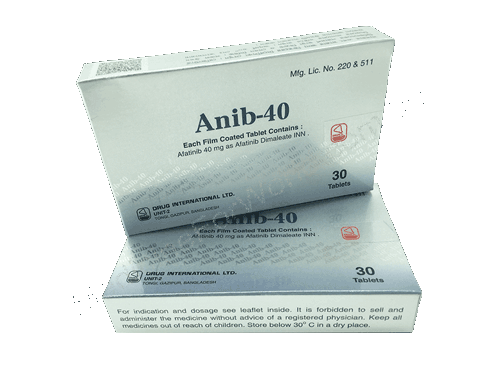
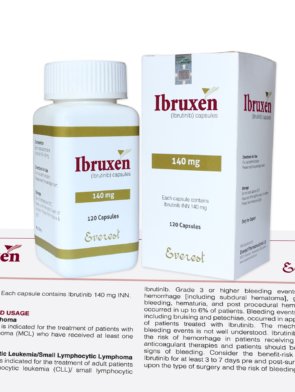
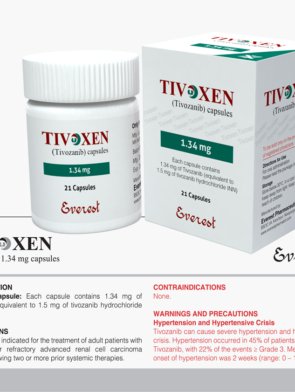
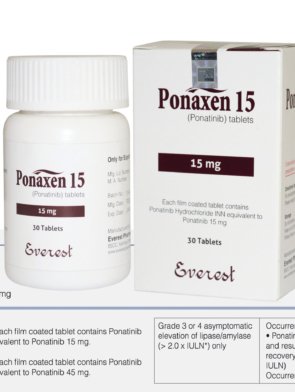
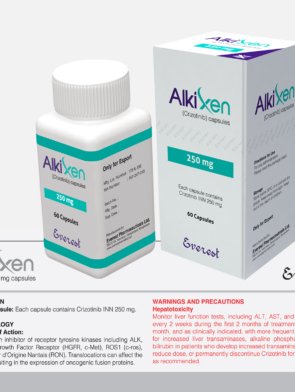
Reviews
There are no reviews yet.